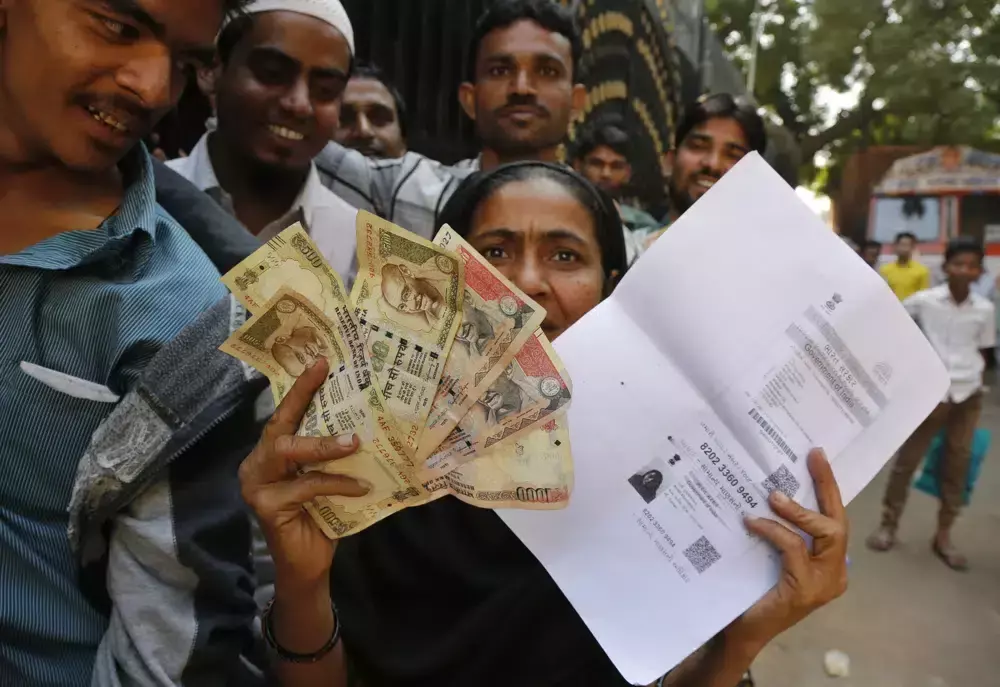
India’s top court said Monday that the government’s surprise decision in 2016 to demonetize high-value bills was legal and taken after consultation with India’s central bank.
The five-judge constitution bench was hearing petitions challenging the currency ban that rendered 86 percent of India’s currency invalid without warning.
They contended that the move was not a considered decision of the government and should be struck down by the court.
Four judges in the five-member bench said the government made the decision after consulting with the Reserve Bank of India and stated there was no flaw in the decision-making process.
Justice BV Nagarathna, however, gave a dissenting judgment, calling the decision “unlawful” and “an exercise of power, contrary to law.”
She said the currency ban could have been carried out through an act of Parliament, not by the government.
In November 2016, Prime Minister Narendra Modi made a surprise TV announcement that all 500-rupee and 1,000-rupee notes would be withdrawn immediately from circulation.
The government defended the decision by saying it would root out illegally hoarded cash, fight corruption and crack down on money laundering and terrorist financing.
The government eventually released new currency notes worth 500 and 2,000 rupees.
However, the sudden decision caused losses for small businesses and manufacturers, bringing on an economic slump and months of financial chaos for ordinary, cash-dependent Indians.
According to the Centre for Monitoring the Indian Economy, a Mumbai-based research firm, India lost 3.5 million jobs in the year following demonetization.